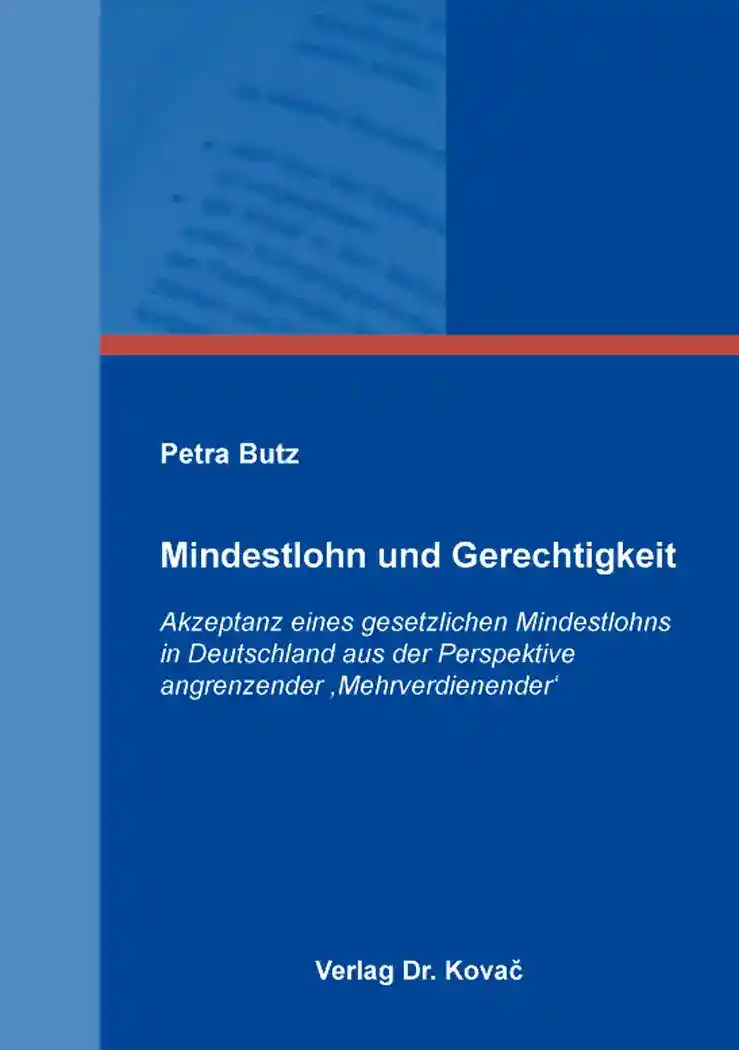Petra ButzMindestlohn und Gerechtigkeit
Akzeptanz eines gesetzlichen Mindestlohns in Deutschland aus der Perspektive angrenzender ,Mehrverdienender‘
Schriftenreihe volkswirtschaftliche Forschungsergebnisse, volume 218
Hamburg 2017, 404 pages
ISBN 978-3-8300-9606-1 (print)
ISBN 978-3-339-09606-7 (eBook)
About this book deutschenglish
At the end of 2013, after years of societal, political and economic debate about establishing a minimum wage in Germany, the coalition cabinet of the CDU, CSU and SPD signed off on a minimum hourly wage of € 8.50, which went into effect on January 1, 2015. Although many economists warned of dramatic job losses as high as one million, the overwhelming majority (ca. 88 %) of the population welcomed the passing of a legal minimum wage. In light of this arose the yet unasked question, whether those earning just slightly more than the agreed upon minimum wage (“higher earners”) would accept the new law, or would instead feel compromised or unjustly treated as a result of the flattened wage structure. This in turn could result in a loss in motivation and productivity on the business level.
In the context of this research topic, Petra Butz proposes to discuss and explore the following sub-topics: Is the acceptance of the minimum wage by “higher earners” on par with the acceptance by the vast majority? How do institutional frameworks influence this? What impression of minimum wage earners do “higher earners” base their judgement of fairness upon? Does their sense of organizational justice have an effect on the behavior of “higher earners”? How can a possible acceptance or rejection be explained, and on what values and patterns of behavior are they based?
To analyze this research topic, the author uses a socialization-based analytical framework in the form of a multi-level model, which subdivides the system structure into the macro, meso and micro levels. Along these socialization levels and conditions, the author subsequently shows why a minimum wage does not violate the sense of fairness of the individual “higher earner”: the empiric results indicate that one’s sense of fairness and acceptance is predetermined by the macroscopic level of welfare, social and justice ideologies, and in particular by that of distributive justice.
